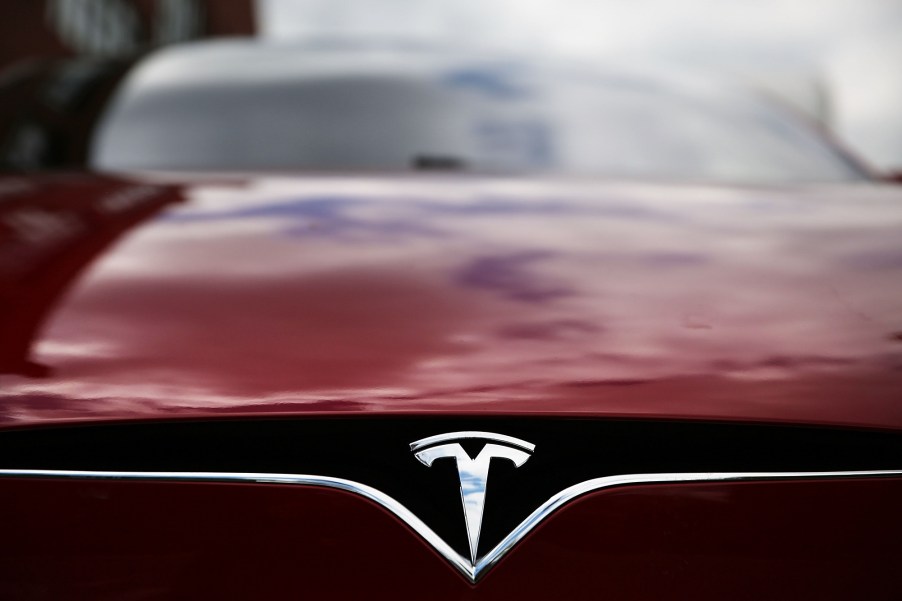
Are EVs Safer Than Gas-Powered Cars?
Electric vehicles (EVs) used to get a bad reputation among cars for safety concerns. Issues like thermal runaway, electrocution risks for first responders, and reports of inextinguishable fires plagued the pioneering EVs. However, with growing popularity, the EV has proved that it might not be as dangerous as consumers thought. Are electric vehicles safer than the average gas-powered car?
Are EVs safer than gasoline-powered cars?
The Insurance Institute for Highway Safety (IIHS) says that with the growing popularity of EVs, it is becoming clear that they are inherently safer than gas-powered vehicles. Frankly, some of the highest scores in crashworthiness on the market in 2022 were EVs. Specifically, the Tesla Model 3 aced crashworthiness tests with the National Highway Traffic Safety Administration (NHTSA) and the IIHS. Also, the Tesla Model 3 achieved one of the highest roof-crush protection scores the IIHS had ever tested for a sedan.

Additionally, the Audi e-Tron and Volvo XC40 Recharge received IIHS Top Safety Pick+ ratings. With a Top Safety Pick award, even the controversial Ford Mustang Mach-E gets commendable safety credentials.
Why are EVs safer than gas-powered cars?
First, the simple presence of gasoline in an internal combustion engine (ICE) vehicle makes it inherently dangerous. Although battery packs are uniquely combustible, they aren’t as volatile as a gas tank and fuel system.
Next, the absence of a front-mounted engine in an EV often lends itself to sturdier construction upfront. In the case of the Tesla Model 3 and Model Y, both cars received top marks from the NHTSA in frontal crashworthiness. Specifically, Tesla’s use of space in the front protected it well and earned the little sedan high safety scores. Most notably, the low center of gravity in EVs makes them uniquely resistant to rollovers.
Are there any safety issues with EVs?
The EVs aren’t entirely fireproof, however. There is a phenomenon called “thermal runaway,” wherein battery cells set off a chain reaction when burning. In fact, Richard Hammond’s unfortunate accident involving a Rimac Concept One electric hypercar resulted in thermal runaway. Authorities reported that the Croatian EV kept lighting on fire for weeks following the crash.

However, the issue can be managed, if not mitigated entirely. Volvo and other automakers have been developing sealed and insulated batteries, which will likely prevent some instances of thermal runaway. Furthermore, fire departments and emergency medical personnel are working with manufacturers like Tesla and Volvo to draft some best practices for safely handling electric vehicle accidents.
Should you buy an electric vehicle instead of an ICE vehicle?

EVs are becoming more popular at a rapid rate. Even in the United States, cities and counties are building fast-charging infrastructure and higher volumes of charging stations. As it becomes more convenient to own a plug-in vehicle, potential owners raise the question of safety. However, the lack of an engine and flammable liquids makes EVs safer than gas-powered cars. Also, most EVs’ lower center of gravity makes them less prone to rollover accidents.
Given the latest findings by safety agencies, safety shouldn’t be as much of a concern for consumers weighing an EV purchase. Frankly, the IIHS concluded that EVs are as safe or safer than conventional vehicles. However, you might want to think twice if you live somewhere without charging infrastructure. If you would like to read more about how first responders are adapting to electric vehicles, scroll down to the following article.



